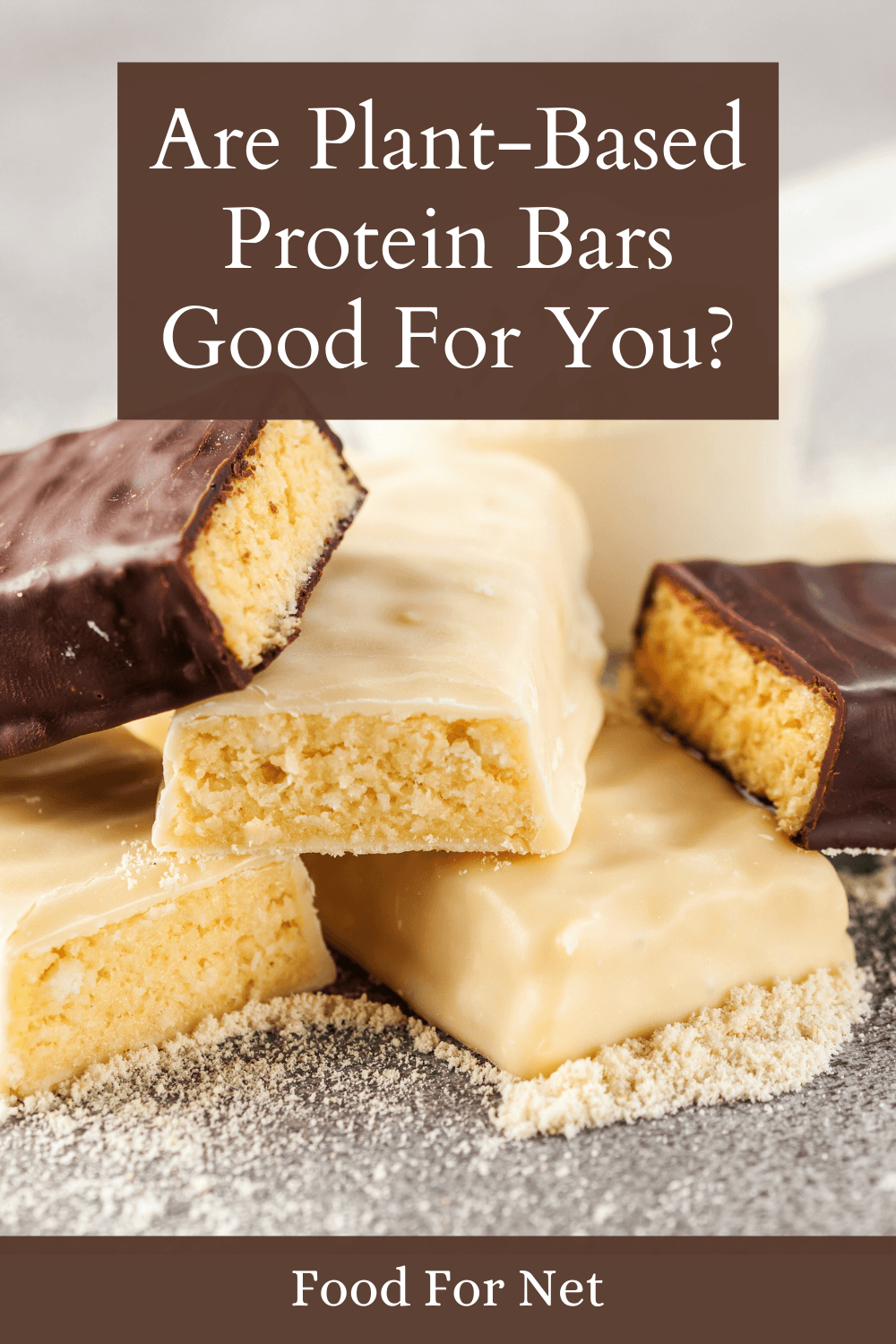
Want to increase your protein intake, lose weight, gain muscle, or have a healthy snack? If so, you might be turning to protein bars. They’re a popular go-to choice these days, partly because they’re so convenient. There are also plenty of delicious flavors to choose from, along with countless styles.
Honestly, if you hunt hard enough, you can find a protein bar or a protein bar recipe for any diet imaginable. While many bars rely on whey protein, plant based protein bars are becoming increasingly popular as well. They’re an easy source of vegan protein, making them perfect for many situations.
So, are plant based protein bars good for you? The bars do have plenty going for them. But, just like plant based meat and plant based cheese, there are some concerning features to weigh up too.
Are Plant Based Protein Bars Good For You?
- What Are Plant Based Protein Bars?
- Benefits Of Plant Based Protein Bars
- How Plant Based Protein Bars Could Be Harmful
- Are Plant Based Protein Bars Clean?
- Do You Need Protein Bars?
- Which Protein Bars Are Best?
- Final Thoughts
What Are Plant Based Protein Bars?
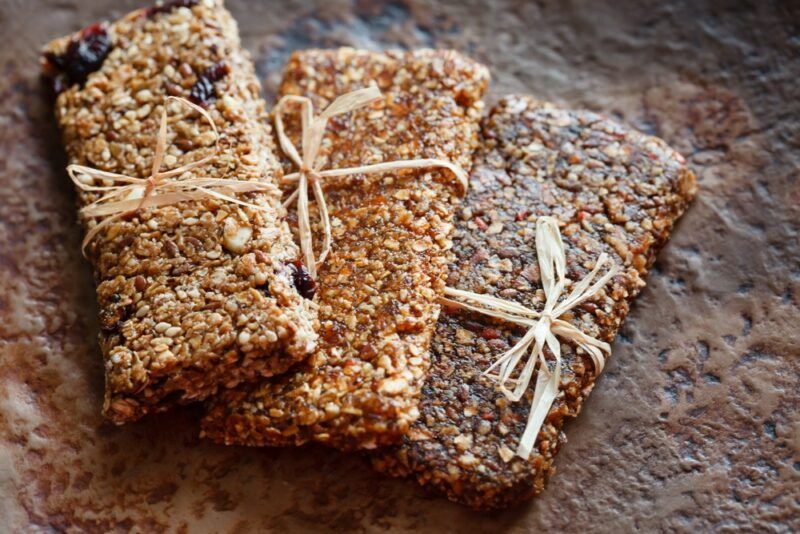
Protein bars come in all shapes and sizes, with a wide variety of possible ingredients. They have one obvious feature in common – their protein content. Most have at least 8 grams of protein per serving, although some contain 15 or even 20 grams of protein in a single bar.
Some of the bars rely on nuts and seeds as the primary source of protein, while others may use protein powder instead. Versions that use nuts and seeds tend to be higher in fat, but they are less processed, which is a bonus.
Many bars rely on dried fruits as their base. That approach provides plenty of natural sweetness, along with some nutrients, fiber, and antioxidants.
Benefits Of Plant Based Protein Bars
They’re An Excellent Way To Refuel
Protein bars are often amazing when you need extra protein, nutrients, or energy, as they tend to be packed with all three. This makes them perfect as a pre- or post-workout snack or for when you’re rushing between tasks and don’t have time to eat properly.
The nutrition isn’t the only reason the bars work well here. They’re also very convenient, as you can simply eat them straight from the packet. The bars have a decent shelf life too, so you can keep store-bought ones in the bottom of your bag in case of emergencies.
There’s A Lot Of Variation
You can find protein bars in almost every style imaginable, including low sugar, low calorie, low fat, keto, paleo, gluten-free, nut-based, nut-free, and more. There’s even more variety still if you’re making protein bars yourself.
Such variety means you can eat protein bars on any type of diet. It’s simply a matter of choosing the right bar for your needs.
Can Promote Weight Loss
Protein bars are often used for weight loss. The main reason is that the protein will help to keep you full, reducing the number of calories you consume elsewhere.
You’ll see the most benefits by using protein bars instead of other foods. The extreme end is to have a protein bar instead of a meal – although this only works if your bar has enough protein and nutrients to act as a good substitute. Alternatively, you might have a protein bar instead of a high carb snack.
They Taste Good
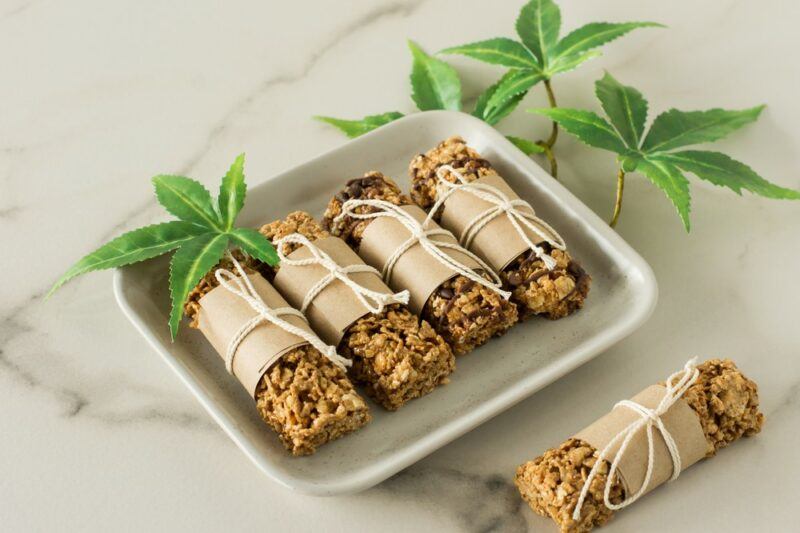
Protein bars are often delicious. Some are just as enjoyable as candy bars, which is pretty impressive.
Flavor is highly subjective, of course. However, plenty of bloggers have compared the taste of different bars, giving you a good idea of what to expect. Most companies do focus on creating delicious products, so it shouldn’t take too many tries to find one that you love.
They Contain Antioxidants
Because these protein bars rely on plants, they’re a decent source of antioxidants and other plant based compounds.
Antioxidants are a bit over-hyped these days, but they are still incredibly important – as they help to keep dangerous oxidation at bay. By doing so, antioxidants could even decrease your risk of some diseases.
How Plant Based Protein Bars Could Be Harmful
They’re Often Highly Processed
Many of the plant based protein bars that you find in stores have gone through considerable processing.
They may have started off with natural ingredients, but those ingredients have been ground up and mixed with others so many times. Often, the final product barely resembles the ingredients that it is based on.
Highly processed food is never a good thing.
Seriously. We have too much of it in our diets already.
Part of the problem is that processed foods tend to be digested faster than non-processed ones. This means they impact your blood sugar levels more quickly. Some nutrients and antioxidants may also be lost during the processing steps.
In the end, processed food is never as good as simply using the original ingredients yourself. Plus, you don’t know much about the processing steps at all, any chemicals that are used, or the resulting risks. Why put yourself through this when there are so many more natural options?
They May Contain Additives
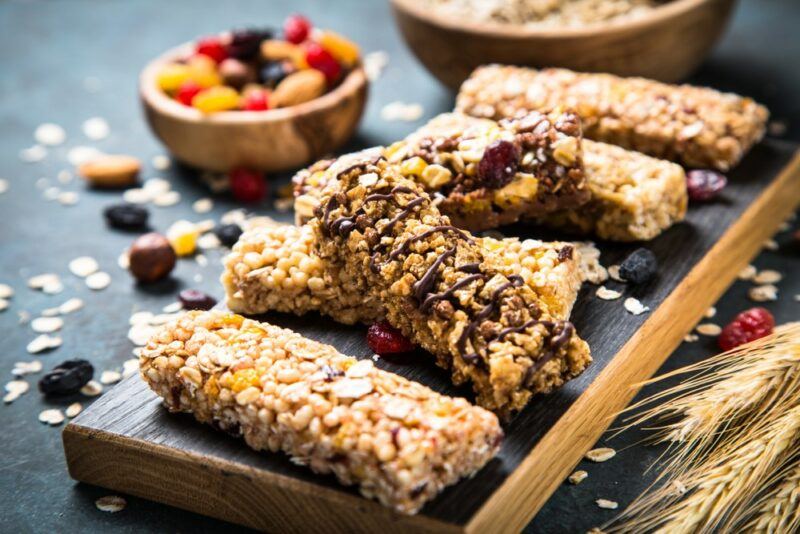
Processed foods have another issue too – additives are often used to help them last longer, taste better, and have just the right texture.
Additives should be safe, but honestly, there’s no guarantee. There’s still a lot that we don’t know about how different ingredients affect long-term health.
Plus, even if small amounts of additives are safe, we’re not really getting small amounts. After all, processed foods are becoming more and more common. Many of them contain multiple types of additives too, so the additive content adds up quickly.
Is this really a good idea?
If nothing else, it’s worth keeping your additive intake to a minimum. Try relying on processed foods only when you really need to and keep most of your focus on natural foods instead.
They’re Often High In Sugar
Protein bars often rely on dried fruit and some type of sweet binder, like honey. That combination gives you a fairly high sugar snack. You might even get 12 to 14 grams of sugar in a single bar. That’s a lot for something that’s meant to be healthy.
The sugar content is easy to miss too, as some high sugar bars are promoted as being healthy. For example, Vega’s 20 gram protein bar contains 18 grams of sugar per serving, coming in at 290 calories. That’s almost as much sugar as protein!
Some products even contain more protein than sugar, which seems to defeat the entire point. Such products are little more than candy bars in disguise.
High sugar protein bars will be a poor choice for anyone following a low carb or keto diet. There are some low sugar and low carb choices out there too. These can be more appealing, but they typically rely on artificial or natural sugars for their sweetness (which come with their own issues).
The Sodium Content
Some protein bars are high in sodium too. This isn’t always the case, thankfully, but a few bars do contain 220 mg of sodium in a serving.
The problems with too much sodium are well-known. Excessive amounts of the mineral can raise your blood pressure and heart disease risk, while also contributing to loss of calcium, water retention, and side effects like headaches.
Having some sodium is essential, but most of us need to cut back on sodium, rather than increase our intake.
Thankfully, there are plenty of low sodium protein bars, so you can avoid this issue entirely by checking the sodium content before purchasing any bar.
They’re Not Always Vegan Friendly
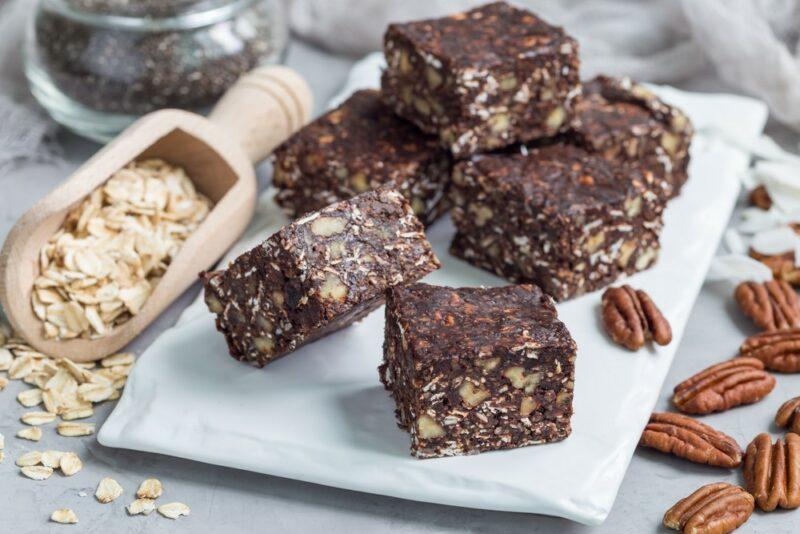
The term plant based implies ‘plants only’, i.e., no animal products. That’s not necessarily true, though.
After all, a plant based diet isn’t necessarily a vegan one. For many people, plant based simply means they’re focusing on plants most of the time, but may still periodically have some meat or seafood.
The same idea applies to plant based products. While many are vegan-friendly and are completely free from animal-based ingredients, some may still use ingredients that you don’t want, like gelatin or chocolate made with milk.
This is where the ingredients label comes in, helping you to see exactly what was added to the protein bar. Keep an eye out for vegan labeling too. Many brands will proudly advertise that they’re vegan-friendly, saving you time.
Can Lead To Weight Gain
Protein bars are often used for weight loss. Yet, they can have the opposite effect.
Part of the problem is the calorie content. An entire protein bar often contains more than 200 calories. Sometimes you’re getting close to 300 calories. That’s a decent amount, especially if you’re eating the protein bar as a snack.
Plus, protein bars have this kind of health halo. It’s easy to assume that they’re incredibly good for you, particularly if the marketing uses terms like non-GMO, organic, plant based, or clean.
The assumption that the bars are healthy might mean you don’t pay enough attention to the nutritional details, ingredients, or calorie content.
So, take a step back. Rather than assuming the bars are healthy, think about how they fit into your diet. Will they help? Will they increase your calorie intake too far? Are there better options?
There Are Too Many To Choose From
It’s wonderful that there are so many types of protein bars out there.
Still… the number of options gets pretty overwhelming. The products are often quite different from one another too. Choosing which is best can get stressful fast – even more so if you’re trying to decide when you’re in a hurry.
Don’t forget about the price, as this will influence your decision too. Some protein bars are seriously expensive, but expensive doesn’t always mean better.
Are Plant Based Protein Bars Clean?
Plant based protein bars often seem like a cleaner option than ones made using animal ingredients. This is true in some senses, as they avoid some of the more concerning ingredients, like gelatin.
Still… as we mentioned earlier, plant based protein bars are often highly processed and may rely on additives. Such ingredients aren’t what most of us would call clean at all.
Do You Need Protein Bars?
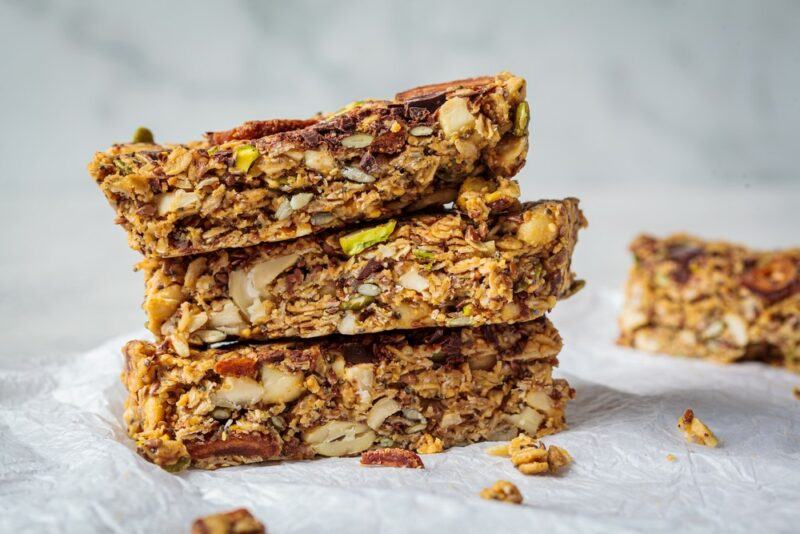
While well-made plant based protein bars offer plenty of benefits, there’s one more important question: Do you actually need them?
Let’s think about the protein itself. That’s the reason for eating the bars anyway, right?
Protein is essential. Our bodies use the amino acids it contains to build critical proteins, like collagen, myosin, and actin. Without enough protein, we’d waste away.
Yet, most people in the United States are already getting plenty of protein. We’re a meat loving nation, after all. There’s no shortage of protein here.
Vegetarians and vegans have access to plenty of options too, including soy, beans, nuts, and seeds, not to mention all the plant based meats.
In many cases, extra protein isn’t going to help at all. Plant based protein bars are often processed too and contain additives that aren’t great for you.
Realistically, protein bars are only a wise choice if you need extra protein. So, if you’re trying to gain extra muscle, lose some weight, or are simply hungry, then protein bars offer some benefits. If this isn’t the case, why not skip protein bars and focus on real food instead?
Which Protein Bars Are Best?
If you’re going to use protein bars, the next question is, which ones? There’s huge variety between them, making some bars a much healthier choice than others.
The absolute best protein bars will depend on what you’re looking for. Still, here are a few areas to pay attention to:
- Look for whole food ingredients as much as possible.
- Labels like non-GMO verified, vegan, and USDA organic suggest that the company is focusing on quality.
- Make sure the fat and sugar content match your needs. For example, keto dieters will want low sugar high fat protein bars, while diabetics may need low sugar and a decent amount of fiber.
- Watch the calorie content. High calorie protein bars can easily lead to weight gain, especially if their protein content isn’t that great.
- Match the protein to your needs too. For example, 20 grams of protein may be perfect if you’re trying to build muscle or skip a meal, but may be too much protein in other situations.
- Pay attention to the marketing. For example, some products will be marketed as being sports-based, while others are weight loss protein bars instead. The sports ones are often higher in sugar, while weight loss ones may use sugar substitutes instead.
Final Thoughts
If you take one thing away from our discussion, let it be this – plant based doesn’t automatically mean healthy.
In the right context, plant based protein bars can be good for you, giving you extra protein, energy, and nutrients, in a convenient form. However, some products aren’t nearly as good as they seem. They may rely on additives, be high in sugar, or contain a surprising number of calories.
To get the most out of protein bars, you’ll need to choose carefully. Look for brands that keep the additives to a minimum and don’t go overboard with the sugar.
You can make protein bars yourself too. There are plenty of excellent recipes out there. You’ll still need to pay attention to the ingredients though, as some homemade protein bars end up being just as high in sugar as the store bought ones. Finally, remember that protein is most helpful when you actually need it. If you don’t, increasing your protein intake isn’t going to do much for your health at all.
Frequently Asked Questions
Are Plant Based Protein Bars Keto?
Like many products, plant based protein bars can be keto friendly, but this isn’t a guarantee. In fact, many products rely on high amounts of sugar or other sources of carbs. If you want a keto friendly version, look for bars branded as such.
Can You Make Your Own Protein Bars?
Yes. Making your own protein bars is a powerful idea, as it allows you to control the ingredients and nutritional profile of the finished product. This is perfect for making sure the protein bars contain enough fiber and protein, and aren’t too high in calories.
There’s an almost endless selection of recipes online, in every style that you can imagine. Just be sure to check the ingredients and nutritional profile of the recipe first – as some are much less healthy than others.
Are Plant Based Protein Bars Low In Sugar?
Plant-based protein bars are often low in sugar, as they’re designed for people who care about their health. Still, plenty of plant-based bars contradict that pattern. Some actually contain just as much sugar as other types of protein bars.
Should Vegans Eat Protein Bars?
Protein bars are a useful source of energy and nutrients in a pinch. They can be part of a healthy diet too, as long as you’re careful about which protein bars you rely on.
Still… protein bars aren’t ideal. They’re often processed, can contain more fat, sugar, or calories than you want, and aren’t as satisfying as a full meal. All these features mean that protein bars are best every so often, rather than using them daily.
Are Plant Based Protein Bars Good For Weight Loss?
Protein bars are often used as part of a weight loss plan, where people are consuming the bars and/or protein shakes instead of full meals. This approach can work, as you’re decreasing your calorie intake while still getting enough protein.
Protein bars may be relevant in other situations too, as long as they decrease your calorie intake. Still, the bars don’t always work like you might expect. Because they’re typically less filling than a meal, some people end up needing more food. Plus, some protein bars are high in calories, which can promote weight gain.
You may need to experiment to work out whether protein bars are right for you. Remember, though, you don’t need protein bars to lose weight. Many people meet their weight loss goals by focusing on whole food instead.

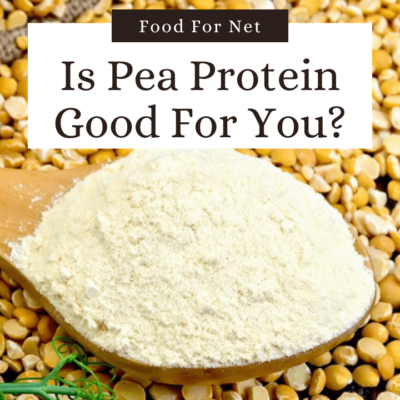
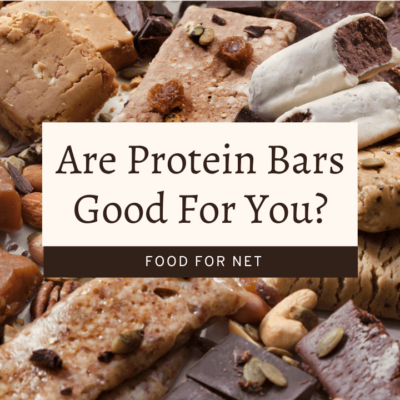


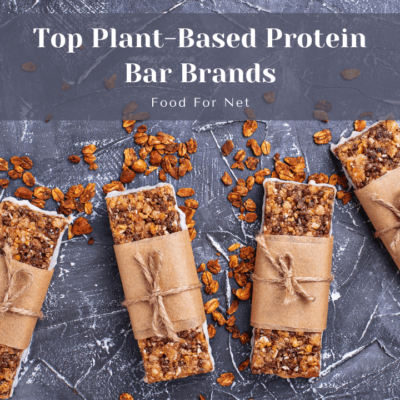
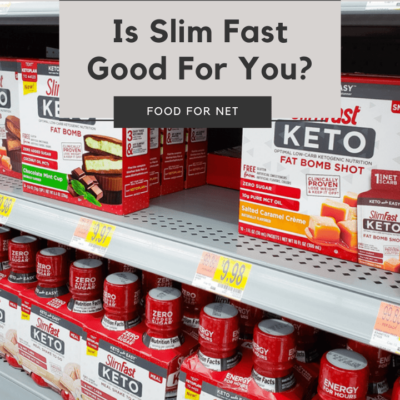

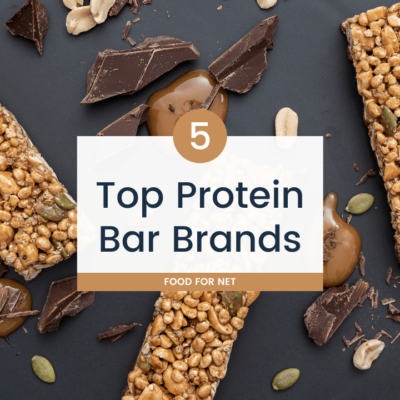
 Are Standing Desks Good For You?
Are Standing Desks Good For You?
Leave a Reply